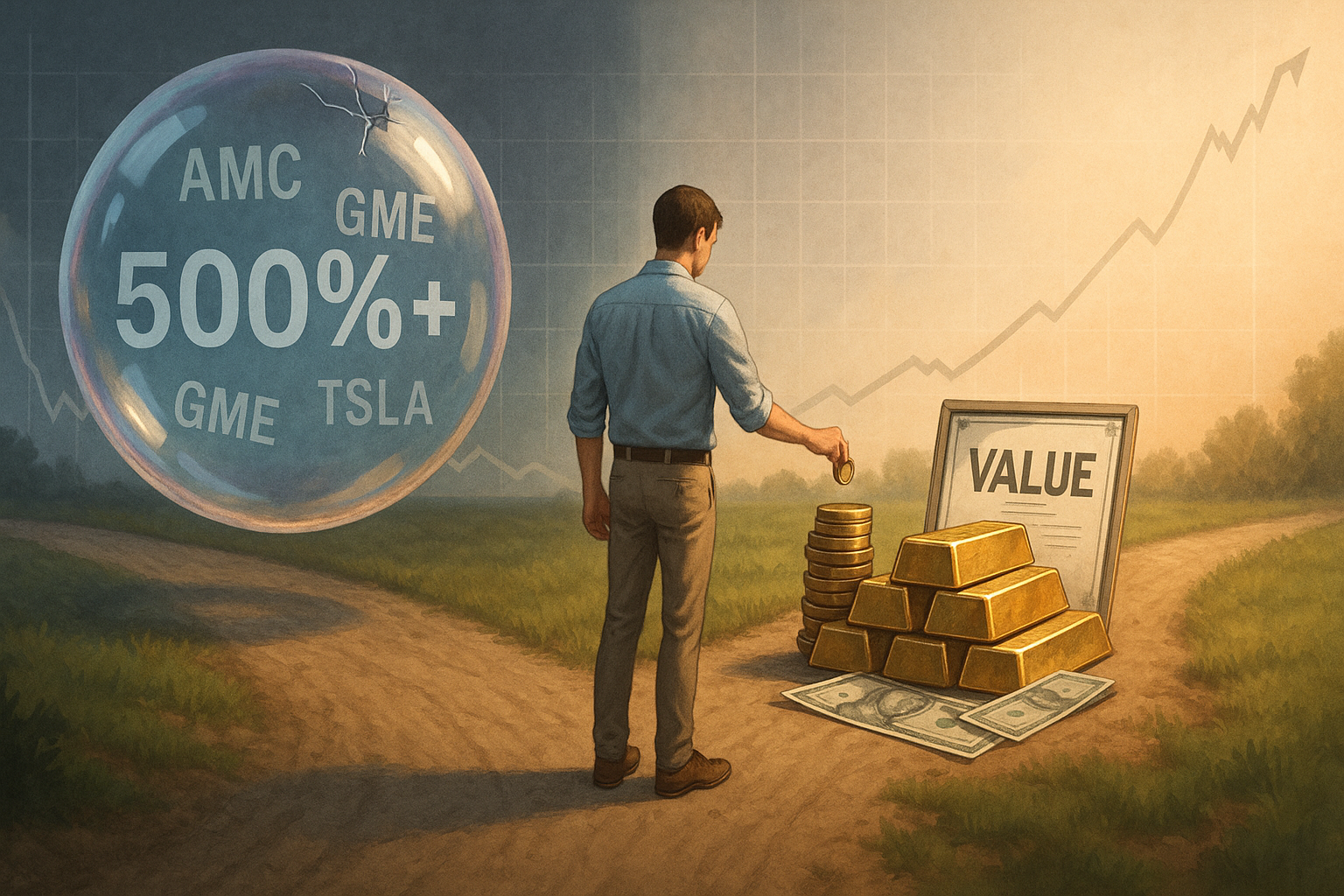I was chatting with a fund manager friend last week who mentioned his newest analyst—bright kid from Wharton—had just put his entire bonus into Nvidia at 950x earnings. My friend asked if he should intervene. I suggested sending the kid a mirror with "THIS IS WHAT THE TOP LOOKS LIKE" engraved on it instead.
Look, I hate to be the one stating the blindingly obvious here, but apparently it needs saying: sustainable wealth isn't created by piling into assets after they've already rocketed 500-1000% in a compressed timeframe while CNBC hosts hyperventilate about paradigm shifts.
The wealth creation playbook isn't complicated. Buy good companies at reasonable valuations. Sell them when they become unreasonably expensive. Repeat until wealthy. Yet here we are, watching the same psychological drama unfold that I've witnessed in every cycle since I started on the Street in the 90s.
Pull up a chart—any long-term chart—of great companies that dominate today's market. Now mark the 2000 and 2008 peaks. See those canyons that followed? The fortunes weren't made by those buying at the summits before those drops. They were built by investors who stepped in while blood ran in the streets, when these now-dominant companies were being priced as if their futures were in serious doubt.
I mean, look at Amazon. If you bought at its 1999 peak, you waited until 2009 just to break even. TEN YEARS underwater. Microsoft at its 2000 peak? Thirteen years to recovery. Thirteen years! That's enough time to conceive and raise a middle-schooler while waiting to get back to zero percent returns.
The wealth created in this bull run wasn't accumulated by those frantically buying into last year's AI hype cycle. It was built by those who methodically accumulated during the COVID crash, the late 2018 swoon, and especially the 2008-2009 financial crisis. The greatest fortunes were amassed by those buying when valuations made sense, not when they required increasingly elaborate justification.
Gold provides perhaps the most sobering lesson in bubble-buying. If you'd purchased gold at its 1980 peak (adjusted for inflation), you'd have waited until 2007 to break even. Twenty-seven years! You could have started a family, sent kids to college, and begun planning retirement, all while watching your "store of value" remain underwater.
The behavioral mechanics behind this are fascinating. We're wired to extrapolate recent trends indefinitely forward. When everything in the Magnificent Seven is up 80-200% in a year, our brains struggle to imagine the possibility of mean reversion. We see patterns in randomness. We mistake bull market genius for actual investment skill.
I'm not suggesting abandoning investing altogether. Dollar-cost averaging into quality companies at reasonable valuations rarely ends badly over sufficient time horizons. But there's a world of difference between that disciplined approach and throwing fresh capital at companies trading at their highest historical valuations after unprecedented runs.
The irony is that inflation—currently around 3-4%—has everyone terrified of holding cash. "Cash is trash," they say, while eagerly buying assets priced at levels that virtually guarantee substandard returns. The mathematical reality is that a temporary 3-4% drag from inflation will likely prove far less painful than catching the wrong side of a 30-50% drawdown.
Meanwhile, the products underpinning much of today's market enthusiasm remain distinctly underwhelming. We've got short-form video algorithms optimized to destroy attention spans and large language models that confidently hallucinate incorrect information. These are the foundations of a $3+ trillion market cap increase? This is what's supposedly changing everything?
The market doesn't care what I think, of course. It will do what it does. Bubbles will form, expand, and eventually pop—as they have throughout financial history. The only question is whether you'll be one of those holding dry powder when genuine bargains emerge, or among those explaining to yourself why "this time is different" as your portfolio takes on water.
Things happen: • Private equity firms are now raising "continuation funds" to buy their own portfolio companies from themselves at higher valuations. Which seems totally fine and not at all like marking your own homework. • Argentina's stock market is up 200%+ this year in dollar terms under Milei. Sometimes the craziest-sounding policies work. I guess. • One of my analyst friends found a major bank that still uses COBOL for its core systems. In 2023. Everything is fine.
